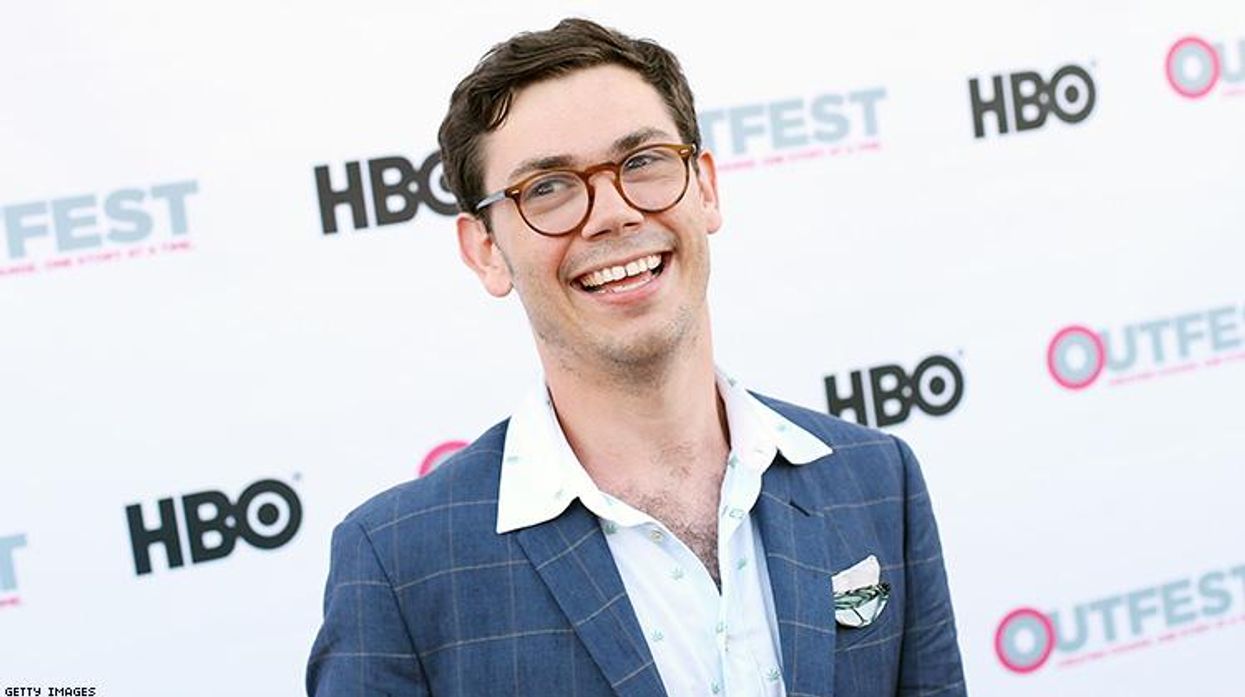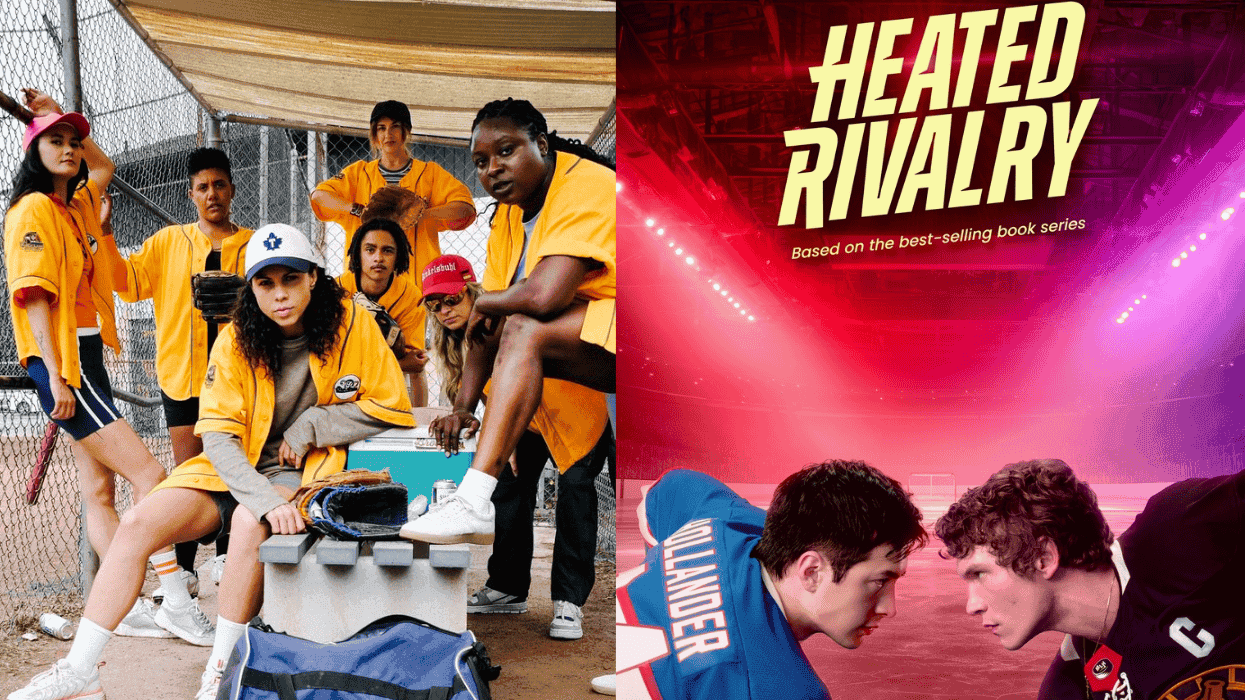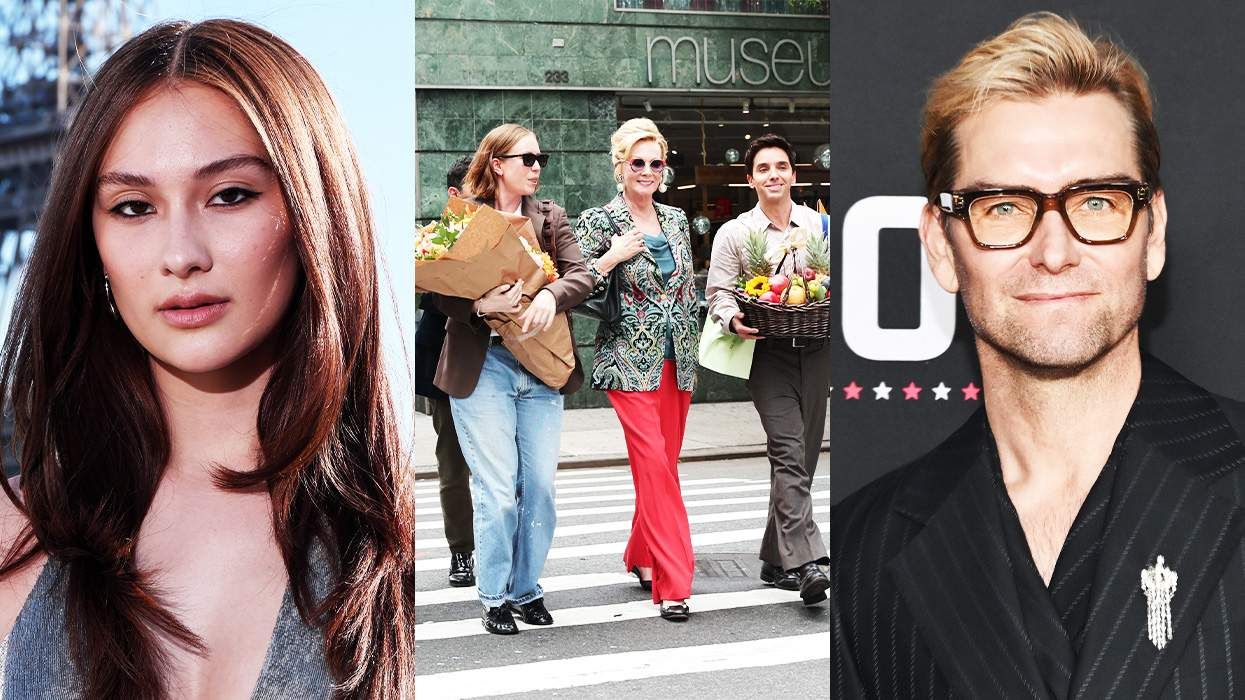This interview was conducted as part of The Advocate's interview series, LGBTQ&A, a weekly podcast that documents modern queer and trans history.
With Special, the Netflix show he created and stars in, Ryan O'Connell has redefined how gay sex is portrayed on TV. Sex is "awkward, funny, humiliating, affirming, all within the span of, like, five minutes," he says. O'Connell set out to depict onscreen sex in an authentic way, something rarely shown with LGBTQ people, and that includes having his character lose his virginity to a sex worker.
Like O'Connell, the character he's based on is gay and has cerebral palsy. To show a character with a disability who has a sex life adds to the groundbreaking nature of the show and it puts the onscreen character in a group with very few others.
On this week's episode of LGBTQ&A, O'Connell discusses creating Special, why we shouldn't be afraid to talk about sex work, and the queer community's "garden variety self-loathing."
[Read highlights below & click here for the full interview with O'Connell.]
Jeffrey Masters: After your car crash, you didn't correct anyone who assumed you had a limp because of the crash and not your cerebral palsy. Why was that easier for people to accept and relate to?
Ryan O'Connell: There's a lot of ignorance around what cerebral palsy is, and honestly, it's not entirely their fault because, truly, cerebral palsy looks different on everybody.
Whenever I had to explain to someone that I had cerebral palsy, it always was met with confusion and I hated it. So then, with an accident, you're just like, "Oh, I got hit by a car." And people are like, "Oh my God, that's so sad. It could have happened to me."
And I think that just made me feel like much, much more digestible to everyone else.
JM: I just wonder what that says about us that we find it easier to show compassion with a car crash and not something medical.
RO: It's not great, spoiler alert. I don't think anyone is like, "Cerebral palsy, ew, gross, sick." It's just that there's no conversation about disabilities. People just don't know. I don't think they're grossed out by it, I just think it's foreign for them.
JM: Your TV show, Special, is based on your life, but unlike you, your character loses his virginity to a sex worker. Why did you want to tell that story?
RO: I think sex work is super important. I've used sex workers. I have a boyfriend, but I still use sex workers. I think that they do an incredible service. And I think there's still a stigma attached to the work that they do and I think that's really fucked up.
I wanted to show the humanity in sex work. I also wanted to show Ryan have sexual agency and have wants and desires because as disabled people, our private parts are cut off by society. I feel like people don't think about us as sexual beings and I think that's incredibly damaging.
I just really don't understand why there's not more gay sex in the media. I don't know why we're not seeing gay men have sex or if we do, it's in this really porno Queer As Folk way. You know what I mean? Why haven't we seen sex as being awkward, funny, humiliating, affirming, all within the span of, like, five minutes because that's really what sex is, or it can be. I'm really interested in exploring gay sex in a real, authentic way.
JM: And using sex workers isn't an uncommon experience for people with disabilities.
RO: Or gay men. A lot of my gay friends use sex workers. It's no big deal.
The things I'm talking about, to me, are not revolutionary. They're not groundbreaking. They're just they're how people live their lives and I feel like the fact that there's any stigma attached to it whatsoever is embarrassing and it needs to course-correct now.
JM: With your own experience with sex workers, why has that been so meaningful to you?
RO: I was largely celibate in my 20s. I came out of the disabled closet when I was 28 and I had a newfound confidence. So, I started hooking up with people for the first time as someone who liked themselves which was a whole new thing for me.
Because you can have sex when you hate yourself, that's its own brand of terror. But I think when you actually feel comfortable in your own skin, it's actually incredibly empowering.
I just started using sex workers because it felt like a safe space to explore and it was judgment-free with no strings attached. It's a safe space and it's not connected to your actual real social life.
JM: Do you feel that same sense of safety when having sex with your boyfriend now?
RO: Yeah, absolutely. The sex I have with my boyfriend is just incredible because we've been together for four and a half years and we know each other so well. And it's such a tender loving thing.
It's like writing a love letter to each other every time or something. That sounds really gay, actually. Strike that.
Using a sex worker feels kind of exciting and new and I think as human beings, we crave newness. I don't think that we are wired for monogamy. I just don't. And I feel like when I tell my straight girlfriends how gay men do sex, they're deeply triggered.
I mean, gay men have such interesting sex lives. They just do.
JM: When you're using dating apps, do you feel like you have to disclose that you have a disability?
RO: No. I think the old me, yes. A lot of what kept me from dating when I was younger, besides garden variety self-loathing, is that I just didn't...my disability is pretty mild. I have a limp, but it's mild.
Part of me felt like, Do I state the limp and then they're expecting something more? Or do I kind of not mention it and then they're surprised? Maybe because I just feel comfortable about myself and I'm very out there about who I am, I don't think to mention it. And I've got to tell you something: no one fucking cares. No one cares. You think they'll care. They don't care. They're just happy they're getting their dick sucked. They're just happy to be there, honey.
[Click here to listen to the full podcast interview with O'Connell.]
The first season of Special is now streaming on Netflix.















Charlie Kirk DID say stoning gay people was the 'perfect law' — and these other heinous quotes
These are some of his worst comments about LGBTQ+ people made by Charlie Kirk.